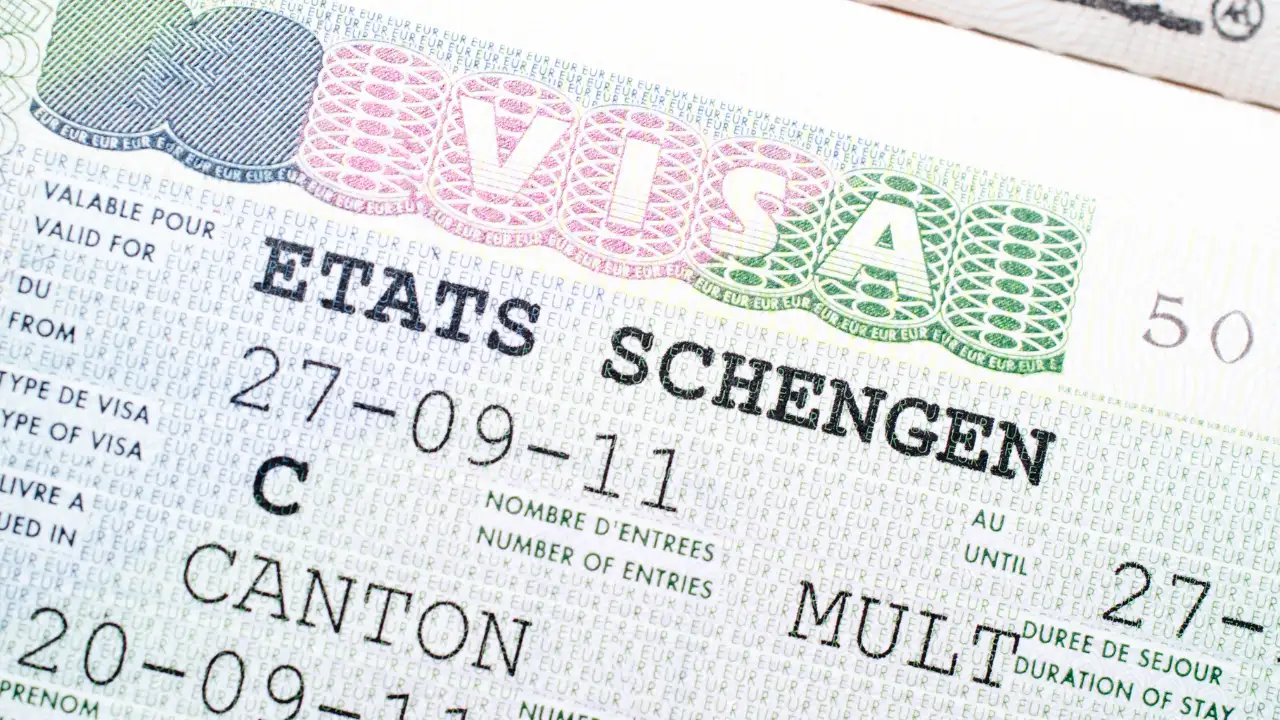For UAE residents planning a European getaway, securing a Schengen visa is the first essential step. From cobbled streets in Italy to the museums of Germany, this visa opens doors to 27 countries. The process may seem overwhelming, but with the right information, it is straightforward.
How to Apply for a Schengen Visa from Dubai, UAE
To apply for a Schengen visa from Dubai, UAE, schedule an appointment at an approved visa application center like VFS, prepare the required documents, including your valid passport, travel insurance, and proof of funds, and submit your application. Processing typically takes around 15 working days, so plan ahead.
What Is a Schengen Visa?
A Schengen visa is a short-term visa that allows its holder to travel freely within the Schengen Area, which includes 27 European countries that have abolished internal borders. It is typically issued for tourism, business, or family visits, and it permits stays of up to 90 days within a 180-day period. The visa can be single-entry, double-entry, or multiple-entry depending on your travel needs.
There are different types of Schengen visas, such as Type C (short-stay) and Type D (long-stay). Most travelers from the UAE apply for Type C visas for leisure or business trips. The key benefit of a Schengen visa is that once you enter one Schengen country, you can move across others without additional border checks, similar to traveling between emirates within the UAE.
When I first applied for my Schengen visa from Dubai, I was surprised by how meticulous the process was. I had underestimated the importance of details like the exact travel insurance coverage amount and the hotel booking confirmations. Thankfully, I prepared a thorough file, and my application was approved without issues — a reminder that preparation really is everything when it comes to visas.
Types of Schengen Visas Available in the UAE
When applying for a Schengen visa from the UAE, it is essential to choose the correct type based on your travel purpose. The most common is the Type C short-stay visa, which allows you to stay in the Schengen Area for up to 90 days within a 180-day period. This is suitable for tourism, business trips, visiting family or friends, or attending conferences.
For those planning to study, work, or reside in a Schengen country for longer periods, the Type D long-stay visa applies. This visa is issued by the individual country where you intend to stay and comes with national requirements in addition to Schengen rules.
Additionally, Schengen visas can be categorized by entry type:
- Single-entry visa: Permits entry into the Schengen Area once. After you leave, the visa expires even if unused days remain.
- Double-entry visa: Allows two separate entries during the visa’s validity.
- Multiple-entry visa: Best for frequent travelers, this visa lets you enter and exit as many times as needed within the validity period, provided you respect the 90/180 rule.
Choosing the right visa type from the outset helps avoid complications during both the application process and your travels.
Who Needs a Schengen Visa from the UAE
Anyone holding a UAE residence visa who is not a national of a Schengen country generally needs to apply for a Schengen visa before traveling to Europe. This includes expatriates living in Dubai or elsewhere in the UAE, regardless of the duration of their UAE residency. Your nationality, not your UAE residency status, determines whether you need a visa.
It is important to note that UAE citizens with Emirati passports can visit Schengen countries visa-free for up to 90 days under existing agreements. However, from 2025 onward, they will need to apply for ETIAS (European Travel Information and Authorisation System), a travel waiver that screens visitors before entry. According to the official ETIAS website, UAE citizens will need to apply for ETIAS authorization before visiting the Schengen Area starting in 2025.
Travelers are responsible for checking their specific visa requirements before planning a trip. Applying for the correct entry permission ensures smooth access at European borders and avoids unnecessary delays.
Schengen Visa Requirements for UAE Applicants
Applying for a Schengen visa from the UAE requires careful preparation of supporting documents to demonstrate the purpose of your trip, financial stability, and readiness to comply with visa rules. The key requirements include:
- Valid passport: It must be valid for at least three months beyond your planned return date, issued within the last 10 years, and have at least two blank pages.
- Completed visa application form: This should be filled out accurately and signed.
- Passport-size photographs: Typically, two recent photos that meet Schengen photo specifications.
- Proof of accommodation: Hotel booking confirmations or an invitation letter if staying with family or friends.
- Flight itinerary: A confirmed or tentative return ticket showing entry and exit from the Schengen Area.
- Travel insurance: Coverage of at least €30,000 valid across the Schengen Area, covering medical emergencies and repatriation.
- Proof of sufficient funds: Recent bank statements (usually last three to six months) to demonstrate you can afford your stay.
- UAE residence permit copy: Valid for at least three months after your planned return.
Additional documents might include a cover letter explaining your trip, a no objection certificate (NOC) from your employer, or evidence of family ties if visiting relatives. Providing a complete and well-organized file can significantly improve your chances of approval.
Step-by-Step Schengen Visa Application Process in Dubai
Applying for a Schengen visa from Dubai involves a series of steps designed to verify your travel plans and eligibility. Following the process carefully helps ensure your application is accepted without unnecessary delays.
- Determine your destination and main Schengen country: Apply at the embassy or consulate of the country where you will spend the most time, or your first point of entry if durations are equal across countries.
- Book an appointment at the visa application center (e.g., VFS Global): Most Schengen countries outsource application submissions to VFS. Book your slot online well in advance, especially during peak travel periods.
- Prepare and organize your documents: Ensure you have all required paperwork, including your valid passport, visa form, photographs, proof of accommodation, flight itinerary, insurance, and financial statements. Double-check embassy-specific requirements.
- Attend your appointment and submit biometrics: At VFS, you will submit your documents, provide fingerprints, and a digital photo if this is your first Schengen visa in the past five years.
- Pay the visa and service fees: Fees vary by age and country, but you can expect to pay approximately €80 for adults plus the VFS service charge.
- Wait for processing: Standard processing time is about 15 working days, though it can take longer during busy seasons or for certain nationalities.
My first Schengen visa process in Dubai taught me the value of early preparation. A friend had to delay their trip because they waited too long to book their appointment — something I avoided by scheduling as soon as my travel dates were set.
Schengen Visa Fees and Processing Times
The cost of a Schengen visa from Dubai depends on the applicant’s age and the type of visa. As of 2025, the standard fees are:
- Adults (age 12 and above): €80 (approximately 320 AED)
- Children aged 6 to 11: €40 (approximately 160 AED)
- Children under 6: Free
In addition to the visa fee, applicants must pay a VFS service fee, which ranges from about 84 AED in Dubai to 109 AED in Abu Dhabi. These fees are non-refundable, even if the visa is denied.
Processing times typically take around 15 working days from the date of your appointment. However, it is recommended to apply at least three to six weeks before your planned departure, as delays can occur, especially during peak seasons or if additional documents are requested. In some cases, processing may extend to 30 or even 60 days, depending on the complexity of your application.
Careful planning and timely submission can help avoid unnecessary stress and rescheduling of travel plans.
Travel Insurance for Schengen Visa
Travel insurance is a mandatory requirement for obtaining a Schengen visa. It ensures that you are financially protected in case of medical emergencies, accidents, or repatriation during your stay in Europe. The minimum coverage must be €30,000, and the policy must be valid across the entire Schengen Area for the full duration of your trip.
In the UAE, Schengen-compliant travel insurance policies are widely available from local and international insurers. The cost typically ranges from AED 100 to AED 500, depending on your age, the length of stay, and the level of coverage. It is advisable to choose a policy from a reputable provider that offers clear documentation, as the insurance certificate will be reviewed during your visa application.
When I applied for my first Schengen visa, I opted for a basic plan that met the minimum requirements. However, after hearing from a colleague who needed medical care abroad, I now always choose comprehensive coverage with added benefits like trip cancellation and lost luggage protection. It provides peace of mind for a relatively small additional cost.
Tips for a Successful Application
A well-prepared Schengen visa application not only increases your chances of approval but also helps avoid unnecessary delays. Here are key tips to strengthen your application:
- Apply early: Book your appointment and submit your application at least four to six weeks before your intended travel date, especially during busy holiday seasons.
- Ensure complete and accurate documents: Double-check that your passport is valid, all forms are filled out correctly, and supporting documents (such as bank statements, travel insurance, and hotel bookings) are clear and consistent.
- Provide a detailed cover letter: Explain the purpose of your trip, itinerary, and how you will finance your stay. This can help visa officers understand your intentions.
- Show financial stability: Submit up-to-date bank statements that clearly demonstrate sufficient funds for your stay and return.
- Avoid inconsistencies: Make sure all details across your documents match — for example, travel dates on your flight itinerary and hotel bookings should align.
A former colleague once rushed through their application and submitted incomplete bank statements. As a result, their trip was delayed by several weeks due to additional document requests. Taking the time to review everything thoroughly can make all the difference.
Ready to Apply for Your Schengen Visa from Dubai?
For professional assistance with your Schengen visa application from Dubai or anywhere in the UAE, contact The Open World. Our experienced team can help you navigate every step—from document preparation to appointment booking—ensuring a smooth and stress-free process.
Final Thoughts
Applying for a Schengen visa from Dubai may seem complex at first glance, but with careful planning and the right documentation, it becomes a manageable process. The key is to stay organized, apply early, and ensure all your paperwork meets the embassy’s requirements. Whether you’re heading to Europe for business, leisure, or family visits, securing your visa smoothly will set the stage for a stress-free and enjoyable trip.
If in doubt, always consult official embassy guidelines or trusted visa service providers to stay updated on the latest requirements.
FAQs
When should I apply for a Schengen visa before my trip?
It is recommended to apply between six months and 15 calendar days before your planned departure. Applying early helps avoid issues due to appointment availability or extended processing times.
What happens if my Schengen visa is rejected?
If your application is rejected, you will receive a formal explanation from the consulate or embassy. You have the right to appeal the decision or submit a new application after addressing the reasons for refusal. Carefully reviewing the feedback and strengthening your documents is essential for success on a subsequent attempt.
Can I apply for a Schengen visa online?
While you can fill out the application form and book appointments online through the embassy or VFS portals, you must appear in person to submit biometrics and provide original documents. There is currently no fully online process for obtaining a Schengen visa.
Is ETIAS the same as a Schengen visa?
No. ETIAS is an electronic travel authorization required for visa-exempt travelers, such as UAE nationals. It is not a visa but a pre-screening system. Visa-required travelers, like many UAE residents, must still apply for a Schengen visa.




